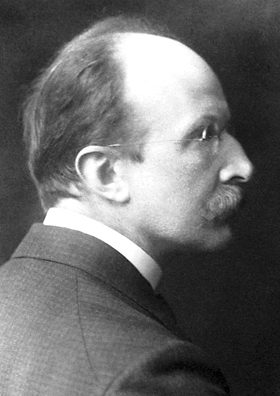
(Wikimedia Commons public domain)
I read Erasing Death: The Science That is Rewriting the Boundaries Between Life and Death (2013), by the Anglo-American specialist on cardiac-arrest resuscitation Sam Parnia, M.D., Ph.D., a few months ago. Parnia is a former fellow in critical care medicine at the Weill Cornell Medical Center in New York City. At the time that he wrote Erasing Death, he was an assistant professor of critical care medicine at the State University of New York and its director of resuscitation research.
I was struck by this passage:
The real challenge probably lies in realizing that while we humans naturally have to establish limits and hence define what we consider science (as opposed to what we define as not being science) based on our own abilities and limitations at any given era, science, the objective method of learning about the entirety of the forces and realities that exist within the universe (whether within the reach of human perception at any given era or not), is itself limitless. It will thus routinely challenge our inherent limitations and in the process help us unearth unexpected discoveries that we could never have anticipated — that is, as long as we are willing to look beyond the limitations we may have set for ourselves. The challenge for a scientist is thus to pursue what may at first seem implausible or unlikely in the hope of finding an incredible piece of treasure in the form of greater knowledge and understanding. Think of the pursuit of the dream of flying, space travel, and even the battle against age-old killer diseases (such as polio), to name just a few. None of these realities would have been accomplished without many people following leads that to others must have seemed unorthodox, wishful thinking, or just impossible dreams at the time. However, we must also realize that during this pursuit of knowledge, many of the leads we follow will most likely turn out to be of little significance. Nevertheless, as with those who deal with the prospecting and mining industry, scientists have to follow various leads because all it takes is to have one lead turn into a gem for it to have all been worthwhile. (278-279)
It’s difficult not to think here of a reminiscence of the great German theoretical physicist Max Planck (1858-1947), whose discovery of energy quanta and founding of quantum theory won him the 1918 Nobel Prize in Physics. He recalled what his teacher, the German physicist and mathematician Johann Philipp Gustav von Jolly (1809-1884), had told him about the state of physics in the nineteenth century:
Physics, von Jolly explained to Planck, was “a highly developed, nearly completely mature science that now, having more or less been crowned by the discovery of energy, was about to take on its final, stable form. True, there might be a little speck or bubble in this or that corner to examine and to work into it, but the system as a whole stood pretty secure, and theoretical physics was noticeably drawing near to the degree of perfection that, say, geometry had already possessed for centuries.”
(That’s my translation. See Max Planck: Wege zur Physikalischen Erkenntnis. Reden und Vorträge, Band 1. Leipzig 1943, where Planck cites von Jolly as calling nineteenth-century physics „eine hochentwickelte, nahezu voll ausgereifte Wissenschaft die nunmehr, nachdem ihr durch die Entdeckung der Energie gewissermaßen die Krone aufgesetzt sei, wohl bald ihre endgültige stabile Form angenommen haben würde. Wohl gäbe es vielleicht in einem oder dem anderen Winkel noch ein Stäubchen oder ein Bläschen zu prüfen und einzuordnen, aber das System als Ganzes stehe ziemlich gesichert da, und die theoretische Physik nähere sich merklich demjenigen Grade der Vollendung, wie ihn etwa die Geometrie schon seit Jahrhunderten besitzt“.)
Planck’s own revolutionary founding of quantum theory was just around the corner (1900), as was Einstein’s equally revolutionary theory of relativity (1905).
Mere specks and bubbles.










